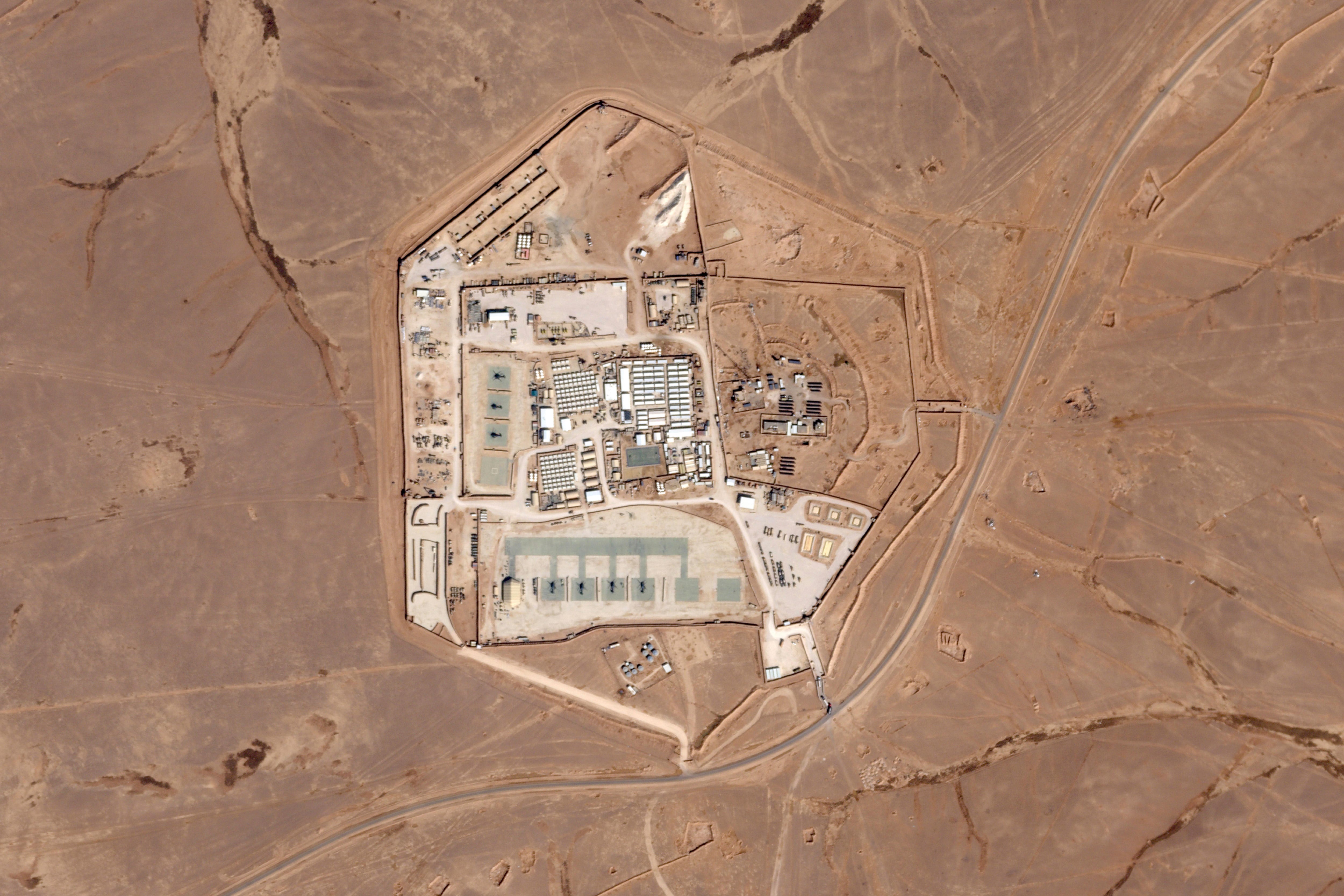Three U.S. service members were killed and up to 34 more were wounded on Jan. 28 after a one-way drone impacted an installation in northeast Jordan, officials from U.S. Central Command confirmed.
The drone attack, which U.S. officials said hit the Tower 22 outpost near Jordan’s border with Syria, is the first such strike that has resulted in U.S. fatalities after months of attacks against American troops in the region by Iran-backed militias.
The extent of injuries to the wounded personnel is unknown at this time. One U.S. official told Reuters, meanwhile, that numerous troops are being evaluated for traumatic brain injury.
In a White House-issued statement on Sunday, President Joe Biden said he was “grieving the loss of these warriors” and blamed the attack on “radical Iran-backed militant groups operating in Syria and Iraq.”
“These service members embodied the very best of our nation,” Biden said. “Unwavering in their bravery. Unflinching in their duty. Unbending in their commitment to our country — risking their own safety for the safety of their fellow Americans, and our allies and partners with whom we stand in the fight against terrorism. It is a fight we will not cease.”
Biden added that the U.S. “will hold all those responsible to account at a time and in a manner [of] our choosing.”
Tower 22, which had not been targeted in previous strikes by Iran-backed militias, is located approximately 12 miles south of the al-Tanf garrison in southeastern Syria, where U.S. troops have maintained a presence to train partner forces as part of the campaign against the Islamic State.
The small installation, which Jordan does not publicly disclose, includes U.S. engineering, aviation, logistics and security troops. An estimated 3,000 U.S. troops are typically stationed in Jordan.
Sunday’s attack is the latest of more than 150 strikes that have been launched on regional bases housing U.S. troops since Oct. 17, shortly after the U.S. sent aircraft carriers, Air Force fighter squadrons and other troops to the Middle East following the Oct. 7 attack on Israel by the Palestinian militant group Hamas.
Iran-backed militias have struck American military installations using a mix of drones, rockets, mortars and ballistic missiles. Scores of U.S. personnel have been wounded since October, including some who sustained traumatic brain injuries.
The attack Sunday was the first targeting American troops in Jordan amid the Israel-Hamas conflict.
“I am outraged and deeply saddened by the deaths of three of our U.S. service members and woundings of other American troops,” Secretary of Defense Lloyd Austin said Sunday. “The president and I will not tolerate attacks on American forces, and we will take all necessary actions to defend the United States, our troops, and our interests.”
The U.S. in recent months has carried out strikes against targets in Iraq, Syria and Yemen in response to attacks on American forces in the region and as a means of deterring Iran-backed Houthi rebels from continuing to threaten commercial shipping in the Red Sea.
Militias claiming responsibility for attacks since October have said the strikes are in retaliation for U.S. support of Israeli in its war in Gaza. Militant groups have also stated the attacks are intended to push U.S. forces out of the region.
The attack Sunday comes as U.S. and Iraqi governments are expected to soon begin discussions about the future role of U.S. troops in Iraq. In a Jan. 10 interview with Reuters, Iraqi prime minister Shia al-Sudani described the presence of 2,500 U.S. troops who deployed to Iraq in support of the mission to defeat ISIS as destabilizing. That rhetoric, however, has yet to yield any formal requests either to the Pentagon or White House, according to U.S. officials.
In accordance with Department of Defense policy, the identities of those killed in Sunday’s attack are being withheld until 24 hours after next-of-kin notifications.
Military Times reporter Meghann Myers contributed to this report.
J.D. Simkins is the executive editor of Military Times and Defense News, and a Marine Corps veteran of the Iraq War.





